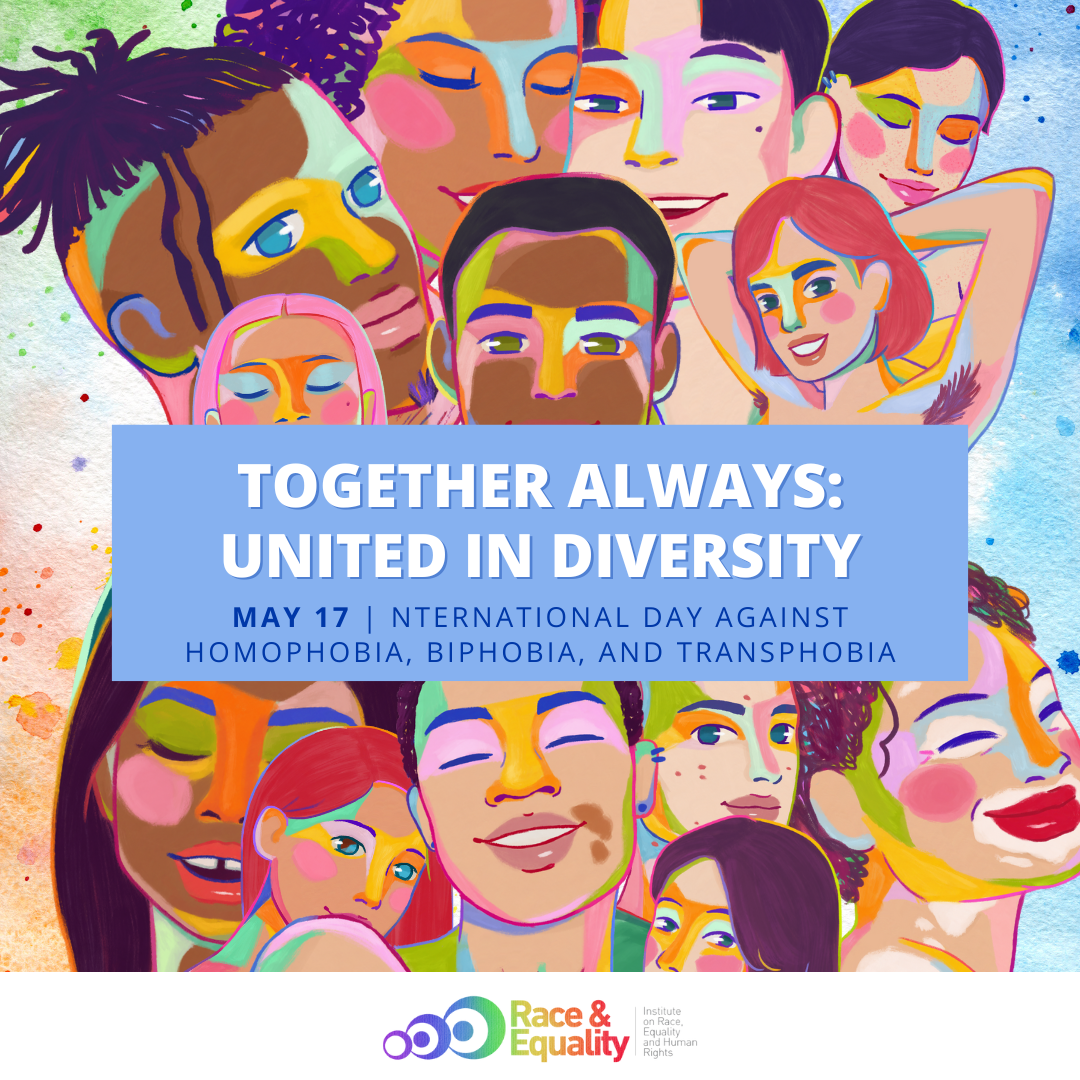Day against LGBTI+phobia: Celebrating advancements and achievements in Human Rights
Washington D.C., May 17, 2023 – Since 2004, every May 17th serves as a reminder that the World Health Organization (WHO) removed homosexuality from its International Classification of Diseases (ICD), […]

Washington D.C., May 17, 2023 – Since 2004, every May 17th serves as a reminder that the World Health Organization (WHO) removed homosexuality from its International Classification of Diseases (ICD), a significant step towards the depathologization of LGBTI+ identities. Therefore, on this International Day Against LGBTI+phobia, the Institute on Race, Equality and Human Rights (Race and Equality) commemorates the right to live free from violence, with dignity, celebrating who we are, and the achievements made by LGBTI+ persons in favor of human rights.
The struggle for equality and human rights for LGBTI+ persons has achieved significant advancements in many parts of the world, and it is important to recognize the efforts and relentless advocacy behind these achievements. From Race and Equality, we highlight some of the accomplishments from the past year in the region.
In Colombia, the Truth Commission (CEV) incorporated a gender perspective to analyze the disproportionate impact of the armed conflict on the lives of LGBTI+ persons. This serves as an important reference for other Latin American countries that have experienced similar armed conflicts but did not adequately consider the rights of LGBTI+ persons in their peace processes. Such advancements provide a starting point to clarify patterns of violence and subsequently advocate for state recognition, reparation, and accountability measures for perpetrators.
Furthermore, the Constitutional Court ordered the National Registry to include a non-binary category in identification documents. Thanks to the initiative and fight of Dani García, who requested a new document in 2019 with an “indeterminate” sex marker. The Court also instructed the Congress to regulate the rights, services, and obligations to ensure that non-binary individuals can access them.
In Peru, for the first time, the State apologized to a transgender woman, Azul Rojas, and recognized international responsibility for violating her rights in 2008. This comes after two years of the Inter-American Court of Human Rights (IACHR) ruling on the first case of torture due to discrimination against an LGBTI+ person in the region.
Another historic ruling from the IACHR was the recent achievement in the case of Crissthian Olivera vs. Peru, the first complaint of discrimination based on sexual orientation in the country before this international body. Both judgments by the IACHR held the Peruvian state responsible and ordered comprehensive reparations for the victims, along with a series of measures to promote equality and non-discrimination in the country.
In Brazil, the National Secretariat for LGBTQIA+ Rights was created by the government, and for the first time, a transgender person, Symmy Larrat, assumed the position. Additionally, Benny Briolly became the first transgender person to receive precautionary measures from the Inter-American Commission on Human Rights (IACHR). Benny Briolly, a black transgender councilwoman, received these measures due to being in a situation of gravity and urgency, at risk of irreparable harm to her rights based on her gender identity, her work in politics, and as a human rights defender.
In Nicaragua, despite an authoritarian regime and a context of censorship, civil society created and maintains the Observatory of Human Rights Violations against LGBTI+ Persons. These organizations play a fundamental role in promoting equality and visibility for the LGBTI+ community in the country.
In Cuba, the Family Code was approved, legalizing same-sex marriage and the possibility for same-sex couples to adopt.
It is crucial that we continue to promote diversity and respect for gender identity, sexual orientation, gender expression, and sexual characteristics of LGBTI+ persons, and continue celebrating the achievements of civil society in favor of human rights.
To continue contributing to the recognition of LGBTI+ persons and their rights, it is urgent for states to develop measures aimed at:
- Decriminalizing same sex relationships;
- Enacting laws that prohibit discrimination;
- Penalizing hate crimes committed against LGBTI+ persons;
- Granting recognition to transgender individuals to obtain identification documents without the need to comply with abusive and stigmatizing requirements;
- Implementing training programs for police officers, personnel in correctional facilities, teachers, social workers, caregivers, and public officials in general, to better serve the LGBTI+ community.

